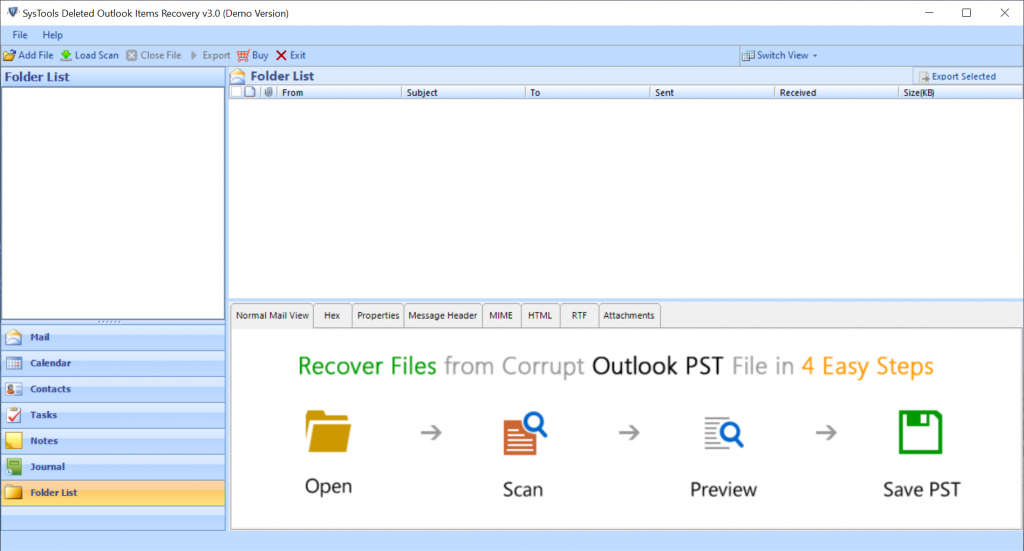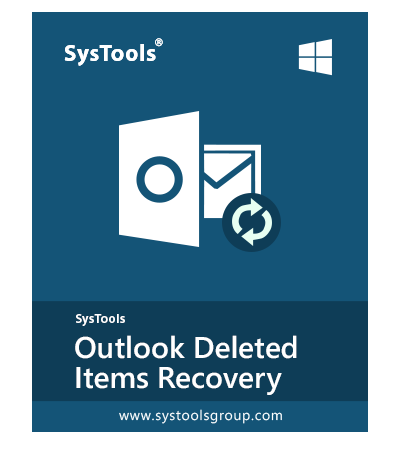Learn to recover deleted calendar events in Outlook 2010 / 2013 / 2007.
Microsoft Outlook, Although known as an email client but is a Personal Information Manager. It includes functions like emailing, calendaring, contact managing, task managing, journal logging, and even web browsing.
Sometimes we tend to lose Outlook data due to data corruption, virus attack, or due to various Outlook errors.
In this blog, I am going to talk about recovery solutions for Outlook desktop application. I am going to show how to recover deleted calendar events in Outlook 2010 / 2013 / 2007.
This blog is for someone investigating as a digital forensics expert. And want to know his/ her suspect’s calendar events. Also, even if you are just an individual who is looking to recover their calendar events in Outlook.
Till 2010, we used to restore calendar events in Outlook through the “Recover Deleted Items” option.
Let’s see how!
Restore Deleted Calendar Events in Outlook 2010 / 2013 / 2007 Manually
Follow these steps to restore Outlook calendar events like appointments or meetings:
- Start by Ctrl + click on the file location of the missing Calendar Events (Choose the Inbox folder for Emails).
- Go to the menu bar and select the “Tools” icon.
- A displayed option list will appear, choose Recover Deleted Items.
- Locate the folder (Calendar) to be restored, and click on the ‘Recover Selected Items’ button
Recover Calendar Events Using Inbox Repair Tool
Commonly, files are lost or blocked off because of PST corruption or harm. At the point when this occurs, such data files should be fixed before any recuperation can be made.
Microsoft Outlook application comes with a built-in repair tool called an “Inbox Repair Tool” (ScanPST.exe). This feature tool is build to fix minor PST corruptions and restore affected data files. If your Calendar events become corrupted, you can run the ScanPST.exe to repair and restore the files.
To use ScanPST.exe, follow the guide below:
- Press Win + E to start Windows Explorer.
- On the Windows Explorer’s panel, follow the file path and locate the ScanPST.exe tool under the Outlook.
- Choose Browse; find and select the Outlook/PST file to repair (and restore).
- To initiate a scan click on the Start button.
- Then click Repair to complete the process.
- Once the process gets completed, the damaged file (Calendar event) should now be recovered.
These processes are viable in the cases of minor corruptions and temporarily deleted Outlook data files. But for major damages and permanent deletion, you need a robust solution. And nothing is better than SysTools PST Recovery Tool Outlook 2010.

Why You Should Go For SysTools-Designed PST Recovery Software
The single biggest reason to go for this software is its RAW scanning feature. This means that the software magically scans each bit of your Outlook data files. So that it can recover Outlook data items from the most damaged files.
Let’s have a look at the other features as well:
- It recovers Outlook deleted items from all the types of data files (PST, OST, & BAK).
- Recovery of permanently deleted items happens instantly.
- It restores all Outlook items like emails, calendars, tasks, journals, contacts, notes.
- It also restores all kinds of calendar items like events, appointments, meetings.
- All the permanently deleted items will show in Red color.
- You have the option to save recovered Outlook files in PST, MSG, EML, HTML, PDF.
You can also transfer your data to Office 365 with the help of this tool.
The tool is very easy to run. The tool’s self-explanatory interface will let you have a smooth and snappy interaction.
To know more visit SysTools Website.




